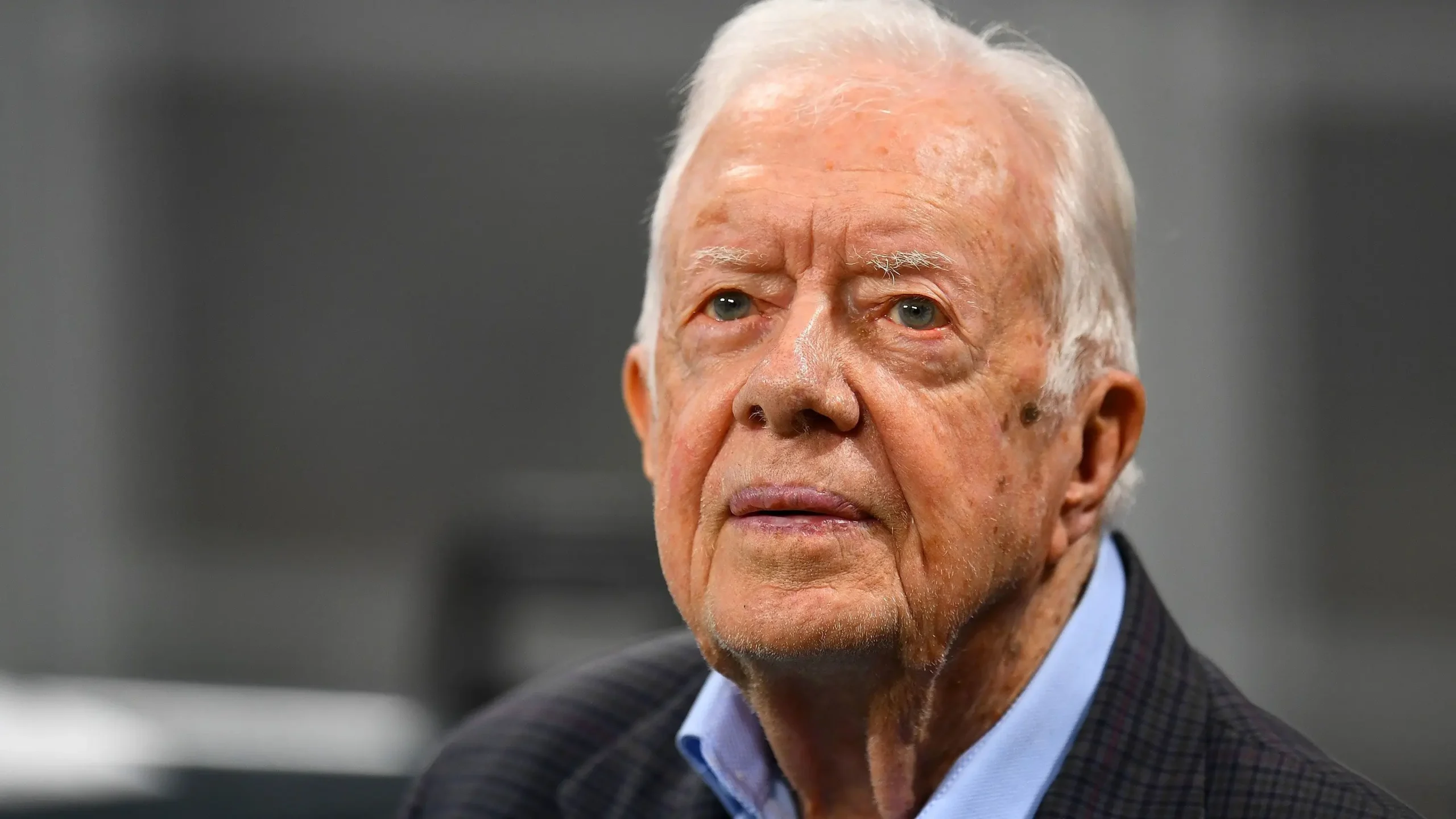President James Earl Carter (1924-2024)
James Earl Carter, popularly called Jimmy Carter, the 39th President of the United States (1977 to 1981), passed away at the age of 100. A member of the Democratic Party, Carter was the longest-lived U.S. President and the first to reach 100 years of age. Carter was unarguably one of the most humble, chaste and […]

Jimmy Carter
James Earl Carter, popularly called Jimmy Carter, the 39th President of the United States (1977 to 1981), passed away at the age of 100. A member of the Democratic Party, Carter was the longest-lived U.S. President and the first to reach 100 years of age.
Carter was unarguably one of the most humble, chaste and morally inclined presidents of America. A prolific writer, he wrote 32 books, all of which were bestsellers, ranging from political memoirs, poetry, a novel and a children’s book.
Carter was also forthright in his idea of racial equality, drawing his credentials on the missionary traditions of his Baptist faith and the bastion of racial injustice he witnessed in his Plains, Georgia growing years in the U.S. South. This solidified his aversion to racial segregation and his support for the civil rights movement.
The first demonstrated and true friend of Africa, Carter was the first U.S. President to make a state visit to sub-Saharan Africa with his trip to Nigeria from March 31 to April 3, 1978.
- TETFund and ASUU’s renewed opposition to tax reform bills
- Abuja-Kaduna-Kano Road ready in 14 months – FG
Indeed, his legacy remains most evident in Africa. Until his Presidency, U.S. leaders showed little interest in Africa.
“For too long, our country ignored Africa,” Carter told the Democratic National Committee in his first year as President. During his visit to Nigeria in 1978, he noted: “I think the day of the so-called ugly American is over,” adding that his state visit swept aside “past aloofness by the United States.”
After his first African trip to Nigeria, Carter said: “There is a common theme that runs through the advice to me of leaders of African nations: ‘We want to manage our own affairs. We want to be friends with both of the great superpowers and also with the nations of Europe. We do not want to choose up sides.’”
From there, African leaders soon received invitations to the White House.
Carter made several references to Nigeria in his 570-page book White House Memoir, published in 2010, with the first entry on March 23, 1977, being his identification of Nigeria as one of the countries to engage diplomatically as Americans planned a multilateral solution to the apartheid crisis in South Africa.
Abhorring racial segregation, he once called helping with Zimbabwe’s transition from white rule to independence “Our greatest single success.”
His one-term as U.S. President was largely thought to be lackluster and mediocre, with American historians ranking it below average. The low points were essentially the energy and hostage crisis, which happened under his watch.
Yet, his post-presidency activities were universally praised by friends and foes alike. After suffering a defeat at the hands of Ronald Reagan in the November 1980 election, Carter returned to his native Georgia where in 1982 he set up the Carter Centre, which adjoins the Jimmy Carter Library and Museum that is owned and operated by the U.S. government’s National Archives and Records Administration.
Under the auspices of the centre, he promoted and expanded the frontiers of human rights. Carter was a formidable presence in the non-profit housing organisation – Habitat For Humanity.
Under its umbrella, affordable houses were built for the poor and needy across the world, bringing to the fore and spearheading housing for the less privileged on a global scale.
His most enduring legacy in the Middle East and the best attempt at peace in the region remains the Camp David Accord where he brokered peace agreements that were signed in 1978 by late Egyptian President Anwar Sadat and late Israeli Prime Minister Menachem Begin. The accord established a framework for the 1979 Egypt–Israel peace treaty.
Carter was involved in the monitoring of elections across the world. He conducted numerous peace negotiations, with many hostages regaining their freedom through his mediation. In 2002, he received the Nobel Peace Prize for his contribution to world peace.
We at Daily Trust join current and former global leaders, especially from Africa, to mourn this icon. President Bola Tinubu described Carter as a leader who showed other world leaders the significant impact of commitment beyond the presidency while Kenyan President William Ruto noted that he was “A powerful champion for global peace and human rights.”
Former President Olusegun Obasanjo, who was a military leader of Nigeria when Carter first visited the country and who enjoyed personal affinity with him, said the late American leader was “A great leader, by any standard” and a humble president, “A man who understands power. But he also understands that the beauty of power is really not in using it.”
The world will miss Carter’s voice of integrity and the intellectual honesty he brought to the global stage. He worked for all humankind irrespective of race, religion, or status. He lived a Spartan life.
